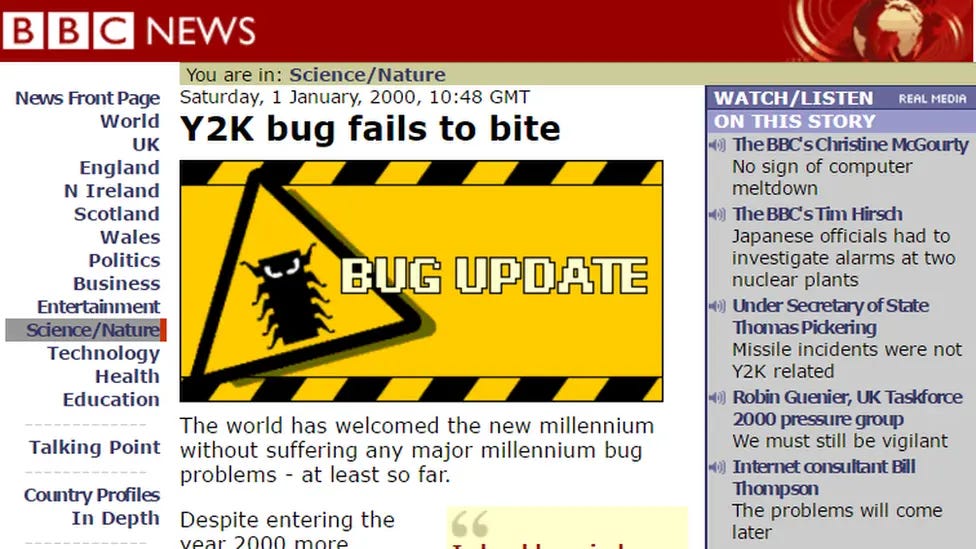Imagine being Cassandra, the tragic prophetess of Greek mythology. She vehemently warned against bringing the Wooden Horse into Troy, but no one believed her. That feels close to home if you're always the one in the room asking, "What could go wrong?" It's like you're constantly on the lookout for storms.
Necessary? Yeah, before every big decision. Easy? Far from it.
Here's the tricky part: speak up about the risks, and most of the time, you might get tagged as the eternal pessimist who always rains on the parade. Don't mention them enough, and watch everyone's surprise when the storm hits, and they ask, "Why didn't you tell us?". Ouch!
It's a lose-lose situation.
The Paradox of Prevention
But here's where it gets really interesting, especially when we talk about pointing out risks, and then they don't materialize "because" you mentioned them. It's like economic forecasts that predict a downturn. When experts shout out a warning, people and markets react, often softening the blow or avoiding the downturn altogether. Yet, instead of a pat on the back, the forecasters might hear, "See, it wasn't going to be that bad after all."
It's the paradox of prevention: the better you catch risks, the less visible your success becomes.
One beautiful example of this paradox was the Y2K Bug that would make the world collapse, but of course, it didn’t happen:
The Y2K or Millenium bug was a computer flaw that was predicted to cause problems when the date changed from December 31, 1999, to January 1, 2000. Extensive efforts were made worldwide to update computer systems and software to prevent the anticipated issues. The successful prevention of major disruptions led some to believe the potential impact was exaggerated, not recognizing the extensive work that prevented the problems.
So, if the risks you pointed out are dodged thanks to your heads-up, you still cried wolf over nothing. And if you decide to keep quiet to avoid the labels and something goes wrong, you're in the hot seat for not speaking up.
Strategy + Stoicism >> Ostracism
So, how do you walk this tightrope without losing your balance? With Stoicism, of course!
For a Stoic, it’s simple: See a risk? Speak up. It's the right thing to do, no matter the backlash on you. And yeah, sometimes it does take guts. Facing criticism from your colleagues, being disbelieved or misunderstood by your managers, or being ostracized for pointing out the icebergs ahead when everyone wants to party is the price of our standing guard.
Stoicism chimes in with not just a shield but a strategy. It tells us to focus on what we're accountable for, not how the crowd reacts.
Have you shouted about a risk? Good. Someone rolled their eyes? That's on them.
Stoicism slices life into two pies:
Things you control (like flagging and proposing mitigations for that risk)
Things you don't (like people’s reactions)
It’s about doing your bit with honesty and letting go of the craving for a pat on the back. This Stoic slice of wisdom isn't about shrugging off feedback; it's about freeing yourself from the drama of reactions. You’ve done what's right; let the chips fall where they may.
In the playbook of the Stoic sage, A product manager on the modern stage, "Act with integrity, bold and sage, Then step back from the spotlight's cage". Watch the unfolding scene, Without attachment, let go of the screen, and keep your heart serene. With virtue as the ultimate pride, In the face of ostracism, smile... wide.
The pain and the shame of being seen as a doomsayer can sting. It's frustrating, sometimes humiliating, to stand alone, your warnings falling on deaf ears. But remember, you're not just raising flags for the sake of it:
You're there to guide your product safely through the storm when/if it appears. Damn, you are not there to watch your product sink!
Less drama, more wisdom. That's the Stoic product manager's way.






